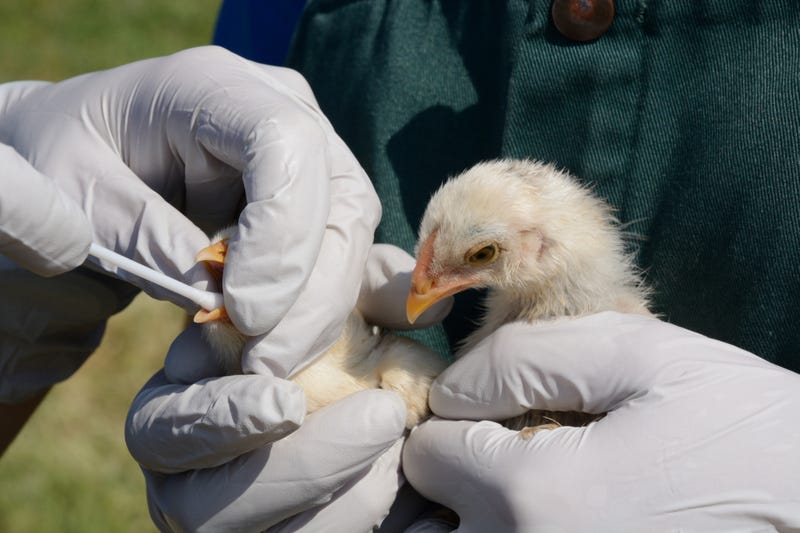
Avian influenza, or bird flu, has been detected in Kentucky, Virginia and Indiana, leading to concerns about disease spread.
As of Monday, the avian influenza detections do not present an immediate public health concern for humans, according to the Centers for Disease Control and Prevention. No human cases of the avian influenza virus have been detected in the U.S.
Still, poultry and eggs should be cooked to an internal temperature of 165 ˚F to kill bacteria and viruses.
Avian influenza is caused by an influenza type A and can infect poultry. It is carried by free flying waterfowl such as ducks, geese and shorebirds.
According to the U.S. Department of Agriculture, some birds that came in contact with the virus are being “depopulated,” or euthanized to prevent the virus from spreading. The department’s Animal and Plant Health Inspection Service provides compensation for disposal activities and virus elimination activities.
APHIS is working closely with state animal health officials in Kentucky and Virginia to control the viral spread and depopulation was already complete in Virginia as of Monday, the USDA said. The Washington Post identified the Kentucky flock as a Tyson Foods commercial broiler flock that has 240,000 chickens. Birds from the flocks will not enter the food system.
Tyson Foods is heightening biosecurity measures at other farms in the region, said Gary Mickelson, a company spokesman.
Earlier this month, the department confirmed the first presence of highly pathogenic avian influenza in the U.S. since 2020 in a Dubois County, Ind., commercial turkey flock that eventually led to the destruction of 29,000 turkeys. Then, more cases were detected in a flock of commercial broiler chickens in Fulton County, Ky., and a backyard flock of mixed species birds in Fauquier County, Virginia.
Samples from the two flocks were tested at the National Animal Health Laboratory Network and cases were confirmed at the APHIS National Veterinary Services Laboratories in Ames, Iowa. One National Animal Health Laboratory Network lab also had a non-negative avian influenza test result from a Webster County, Iowa, turkey flock, with confirmation pending.
This recent rash of cases has raised concerns that avian influenza could affect more poultry operations in the U.S., said The Washington Post. According to the USDA, the nation is the world’s top producer of poultry.
In late 2014 through 2015, an avian flue outbreak in the U.S. resulted in the deaths of 50 million chickens and turkeys. Financial impacts of the outbreak included: $880 million spent for costs related to euthanasia and destruction of infected poultry; a $1.1 billion decrease in exports of broiler chickens in 2015, compared with the prior year; a $41 million decline in egg export and a $177 million decline in turkey export during the same period.
“As part of existing avian influenza response plans, Federal and State partners are working jointly on additional surveillance and testing in areas around the affected flocks,” said the USDA Monday. This program is working to identify bird flu cases in commercial poultry operations, live bird markets and in migratory wild bird populations.
Those who manage commercial or residential flocks should review their biosecurity activities and prevent their birds from coming into contact with wild birds, said the USDA. Sick birds should be reported to officials and kept indoors for the time being. USDA will report illnesses to the World Organisation for Animal Health (OIE) as well as international trading partners.
APHIS plans to announce the first case of bird flu in commercial and backyard flocks detected in a state, but not subsequent cases. All cases in commercial and backyard flocks will be listed on the APHIS website.


